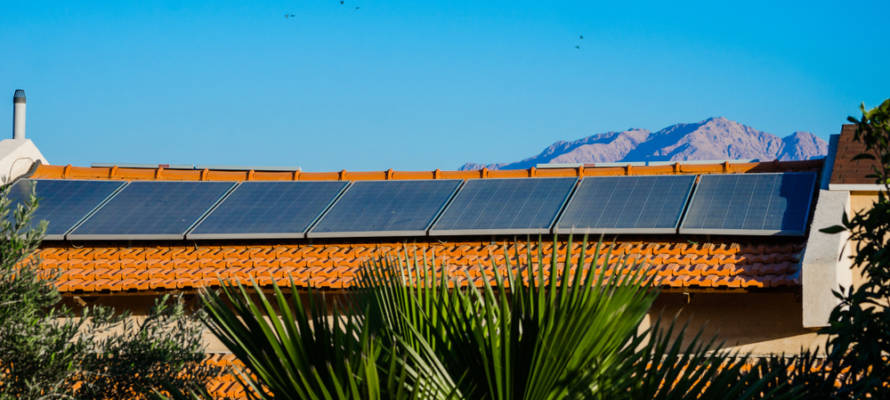Researchers transformed the lotus leaf’s miraculous system of self-cleaning into a new method to make solar panels more efficient.
By United with Israel Staff
Researchers at Ben-Gurion University (BGU) recently discovered a novel way to optimize dust removal from solar panels in order to maintain efficiency and light absorption. They based their research on the self-cleaning properties of the lotus leaf.
The lotus leaf, among a few other plants, uses a process called “ultrahydrophobicity” to keep water out, which also helps the leaves stay free of dirt.
“In nature, we observe that the lotus leaf remains dust and pathogen free due to its nanotextured surface, and a thin wax, hydrophobic coating that repels water,” explained Tabea Heckenthaler, a master’s student from Düsseldorf Germany at the BGU Zuckerberg Institute for Water Research.
“In the desert, dust accumulates on the surface of solar cells and it’s labor-intensive to clean them constantly, so we’re trying to mimic this behavior on a solar cell,” Dr. Yair Kaufman, adviser to the study, added in a BGU statement.
With over 90 percent of Israeli homes relying on solar panels to heat water, maintaining their efficiency is crucial. Use of solar power has also increased worldwide in order to supplement the use of conventional energy.
The research was recently published in a leading peer-reviewed journal.
Remarkably, 98 percent of dust particles were removed using the Israeli team’s new technique.
“We determined that the reason for the increased particle removal is not low friction between the droplets and the superhydrophobic surfaces,” Heckenthaler said. “Rather, it is the increase in the forces that can detach particles from the surfaces.”
The experiment and criterion for particle removal used can be implemented to engineer self-cleaning surfaces.
Israeli engineers have been on the cutting edge of solar energy technology since the 1950s, when the country suffered from severe energy shortages. Today, the country’s solar technology is so advanced that it is nearly cost-competitive with fossil fuels.
With the nearly year-round powerful sunshine in the Negev desert during the day, the area has become known internationally for its solar research and developments.
